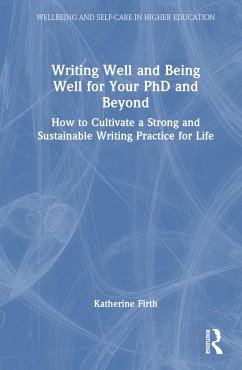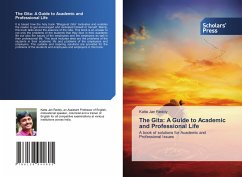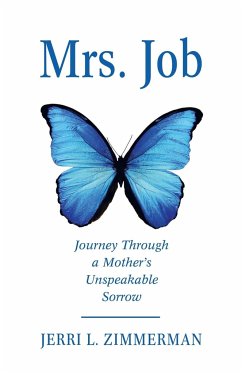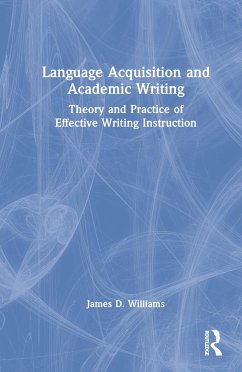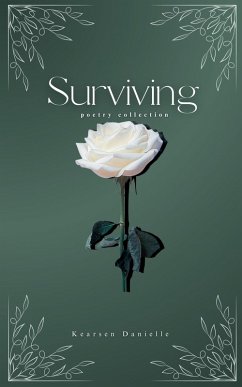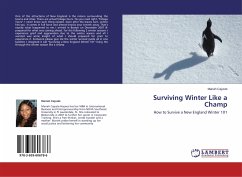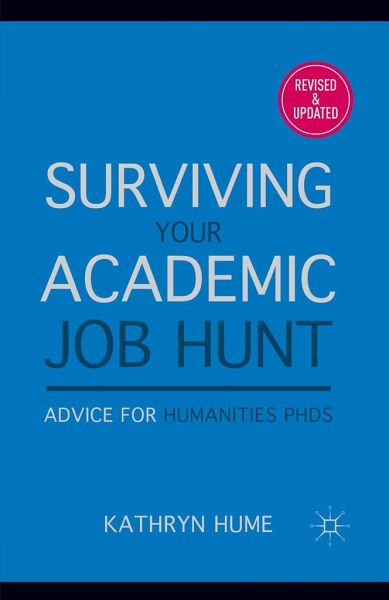
Versandkostenfrei!
Versandfertig in 6-10 Tagen
Weitere Ausgaben:

PAYBACK Punkte
23 °P sammeln!





This candid book dispenses essential advice for academic job hunters and gives them the skills and knowledge to land a job in the humanities. Fully revised and updated, this book offers a comprehensive look at the do's and don'ts of the application and interview process and provides indispensable tips and a variety of practical tools.
KATHRYN HUME Edwin Erle Sparks Professor of English, Pennsylvania State University, USA. She is the author of Fantasy and Mimesis: Responses to Reality in Western Literature, Pynchon's Mythography: An Approach to Gravity's Rainbow, Calvino's Fictions: Cogito and Cosmos, and American Dream, American Nightmare: Fiction Since 1960.
Produktdetails
- Verlag: Palgrave Macmillan / Palgrave Macmillan US / Springer Palgrave Macmillan
- Artikelnr. des Verlages: 978-0-230-10946-9
- 2. Aufl.
- Seitenzahl: 227
- Erscheinungstermin: 19. Januar 2011
- Englisch
- Abmessung: 210mm x 141mm x 17mm
- Gewicht: 280g
- ISBN-13: 9780230109469
- ISBN-10: 0230109462
- Artikelnr.: 31387549
Herstellerkennzeichnung
Libri GmbH
Europaallee 1
36244 Bad Hersfeld
gpsr@libri.de
"This 'survival manual' should be required reading for every doctoral student in the humanities who intends to pursue an academic career. In a realistic rather than idealistic approach, Professor Hume offers under one cover candid information not only for ABD's about to enter the job market but also for assistant professors during their first years in a tenure-track appointment. Written in engaging prose, this volume is a road map for success that stretches from sage advice for conference and campus interviews to departmental politics. The appendix contains many model examples of letters of application and of documents that doctoral students must submit when applying for their first faculty position." - Edward V. Williams, Ph.D., The
Mehr anzeigen
Pennsylvania State University
"Deft, detailed, unerring, candid, upbeat, and filled with examples (including sample CVs and cover letters appropriate to various fields in the humanities, with variations for applying to schools that emphasize teaching and institutions emphasizing research), this is the best book of its kind that I've ever seen. It will be essential to job hunters all across the humanities. Those who own a copy and follow its counsel will enhance their employment prospects about tenfold. Those who don't will find themselves at a tremendous disadvantage. Highly recommended to graduate students, untenured junior faculty, and their mentors." - David Cowart, Louise Fry Scudder Professor of Humanities, University of South Carolina
"Deft, detailed, unerring, candid, upbeat, and filled with examples (including sample CVs and cover letters appropriate to various fields in the humanities, with variations for applying to schools that emphasize teaching and institutions emphasizing research), this is the best book of its kind that I've ever seen. It will be essential to job hunters all across the humanities. Those who own a copy and follow its counsel will enhance their employment prospects about tenfold. Those who don't will find themselves at a tremendous disadvantage. Highly recommended to graduate students, untenured junior faculty, and their mentors." - David Cowart, Louise Fry Scudder Professor of Humanities, University of South Carolina
Schließen
Für dieses Produkt wurde noch keine Bewertung abgegeben. Wir würden uns sehr freuen, wenn du die erste Bewertung schreibst!
Eine Bewertung schreiben
Eine Bewertung schreiben
Andere Kunden interessierten sich für



